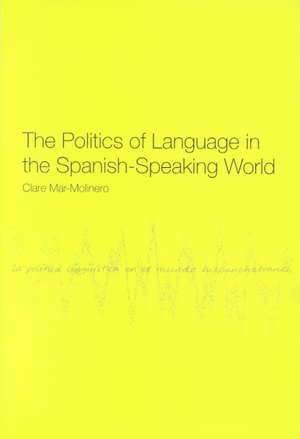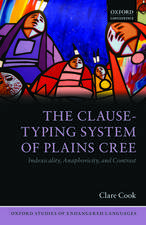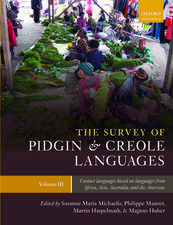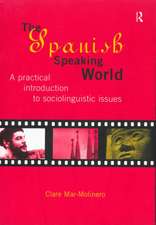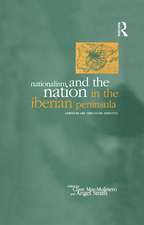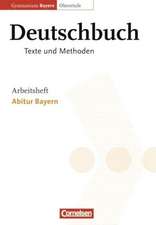The Politics of Language in the Spanish-Speaking World: From Colonization to Globalization: The Politics of Language
Autor Clare Mar-Molineroen Limba Engleză Paperback – 25 mai 2000
| Toate formatele și edițiile | Preț | Express |
|---|---|---|
| Paperback (1) | 450.15 lei 6-8 săpt. | |
| Taylor & Francis – 25 mai 2000 | 450.15 lei 6-8 săpt. | |
| Hardback (1) | 1002.50 lei 6-8 săpt. | |
| Taylor & Francis – 25 mai 2000 | 1002.50 lei 6-8 săpt. |
Preț: 450.15 lei
Nou
Puncte Express: 675
Preț estimativ în valută:
86.14€ • 89.00$ • 71.66£
86.14€ • 89.00$ • 71.66£
Carte tipărită la comandă
Livrare economică 19 martie-02 aprilie
Preluare comenzi: 021 569.72.76
Specificații
ISBN-13: 9780415156554
ISBN-10: 0415156556
Pagini: 260
Dimensiuni: 156 x 234 x 20 mm
Greutate: 0.47 kg
Ediția:1
Editura: Taylor & Francis
Colecția Routledge
Seria The Politics of Language
Locul publicării:Oxford, United Kingdom
ISBN-10: 0415156556
Pagini: 260
Dimensiuni: 156 x 234 x 20 mm
Greutate: 0.47 kg
Ediția:1
Editura: Taylor & Francis
Colecția Routledge
Seria The Politics of Language
Locul publicării:Oxford, United Kingdom
Recenzii
'The book is readable, clearly-structured and informative. It will provide many readers with an awakening to unfamiliar issues and possibly a stimulus for further investigation.' - - Kathryn Crameri, Lancaster University
'... an extremely useful contribution to the fields of Spanish linguistics and Spanish applied linguistics ... an outstanding point of departure for further study and research on the complex and intriguing natire of the Spanish language in the twenty-first century.' - Manel Lacorte, University of Maryland, Applied Linguistics
'... an extremely useful contribution to the fields of Spanish linguistics and Spanish applied linguistics ... an outstanding point of departure for further study and research on the complex and intriguing natire of the Spanish language in the twenty-first century.' - Manel Lacorte, University of Maryland, Applied Linguistics
Cuprins
Introduction PART I Spanish as national language: conflict and hegemony 1 Language and nationalism 2 The ‘Castilianisation’ process—the emergence of Spanish as dominant language 3 Counter-nationalism and the other languages of the Spanish-speaking world PART II Legislation and the realities of linguistic diversity 4 Language rights, language policies, and Language Planning 5 The state and language policies in the contemporary Spanish-speaking world PART III Language and education, 6 Bilingual education, literacy and the role of language in education systems 7 Latin American educational policies in the struggle for linguistic rights 8 Politics, language and the Spanish education system PART IV Language politics in the new millennium: the outlook for Spanish 9 Spanish as minority language 10 Spanish in a global era
Notă biografică
Clare Mar-Molinero is head of Spanish Studies at Southampton University. An experienced author, Clare Mar-Molinero’s previous publications include The Spanish-Speaking World (Routledge) and the BBC course Paso Doble.
Descriere
This book traces how and why Spanish has arrived at its current position, examining its role in the diverse societies where it is spoken from Europe to the Americas.
